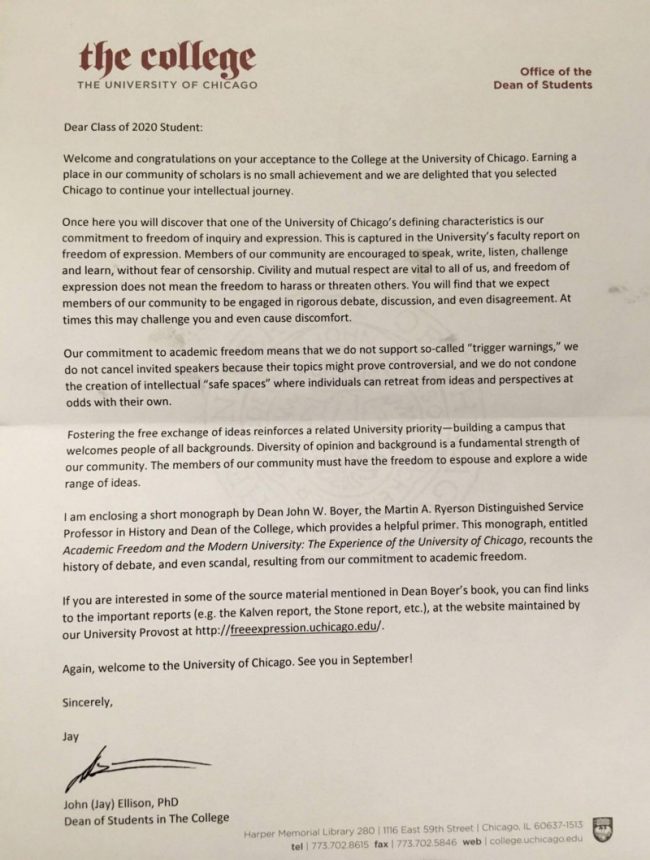Safe spaces and trigger warnings will no longer be offered at the University of Chicago, according to an article by the Chicago Tribune.
Earlier in the semester, University of Chicago sent a letter to its incoming freshman class announcing that they will no longer offer students trigger warnings for sensitive topics or safe spaces as a way to promote free speech on their campus, according to the article.
CSUN however, does offer trigger warnings and safe spaces for their students through professors and resources offered around campus.
One safe space that can be found on campus is the Pride Center. People of the LGBTQ community visit the Pride Center because it is a location that is judgment free and a place where they can feel safe on campus.
“When I first read [the article], it seemed like a big statement that made it seem like they don’t care about their students,” said Ron Villarreal, an employee at the Pride Center.
Trigger warnings are used as a precaution to make sure students and other people are not put in uncomfortable positions depending on the subject that is being discussed.
“I feel like they have a lack of understanding on how important trigger warnings are,” said Villarreal.
Villarreal also said that trigger warnings are not a bad thing, they are a cautionary action to prevent people from getting hurt.
“Trigger warnings aren’t restricting free speech, they are just giving a warning,” said Rain Bernal, the Pride Center Student Assistant.
Dr. Elizabeth Blakey, a professor in the journalism department that teaches about the First Amendment and free speech said, “Free speech includes the right to say something, but it also includes the right to not listen.”
Blakey said that students should be aware that the First Amendment allows them to speak on what they want and it also allows them to not listen to a topic they are uncomfortable with, so they can get up and leave if they do not want to feel uncomfortable.
When Blakey teaches, she warns her students ahead of time of trigger warnings, depending on the situation. She said she once had a woman in class that asked if she could step out of the room if the subject of sexual harassment ever came up in class again.
“In class, I show a clip of The Book of Eli and I tell my students that they can step out of the room if they are uncomfortable because it is very violent,” said Blakey.
Since the University of Chicago is a private school, Blakey said they can make any rules they want regarding free speech.

Credit: Corruption Now Twitter
Blakey said she believes her students think of her office and classrooms as safe spaces because she encourages her students to express their thoughts.
“I do encourage my students to talk about anything,” said Blakey. “I’ve had students come into my office and talk about financial topics, about being homeless, and personal issues.”
Even though Blakey encourages free speech, she does have some restrictions.
“I usually tell my students at the beginning of the semester that we allow free speech, but I don’t allow swearing,” said Dr. Blakey. “They have to be civil.”
The University of Chicago believes that by getting rid of trigger warnings and safe spaces, it will create a welcoming campus for all backgrounds.
Students like Bernal and Villarreal said they understand where the University of Chicago is coming from, but they also know how important trigger warnings and safe spaces are for people of all backgrounds.
“I feel like it goes to show how colleges don’t see it as important for their students,” said Villarreal.
















